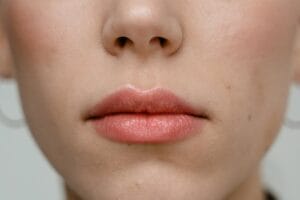Rhinoplasty Preparation: Your Complete Guide to Getting Ready for Nose Surgery
What is Rhinoplasty Preparation?
Rhinoplasty preparation involves several key steps to ensure optimal surgical outcomes and smooth recovery. Essential preparation includes: consulting with your surgeon about expectations, stopping certain medications and supplements, arranging post-surgery support, preparing your recovery space, and following pre-operative dietary guidelines. Proper rhinoplasty preparation significantly reduces complications and enhances healing.
Sarah had been thinking about rhinoplasty for years. The consultation went well, the date was set, and then reality hit—what exactly does preparing for rhinoplasty entail? That’s the question most patients find themselves asking once the excitement settles and practical concerns take over.
Here’s the thing: rhinoplasty preparation isn’t just about showing up on surgery day. It’s a multi-week process that, when done right, can make the difference between a smooth recovery and a challenging one. In my practice, I’ve observed that patients who follow a comprehensive preparation plan tend to heal faster, experience less discomfort, and report higher satisfaction with their results.
This guide covers everything you need to know about rhinoplasty preparation—from the initial weeks before surgery to the final hours before your procedure. We’ll walk through medical requirements, lifestyle adjustments, home preparation, and what to expect during those crucial first days of recovery.
Understanding Rhinoplasty Preparation Timeline
Most surgeons recommend starting your rhinoplasty preparation about four to six weeks before the scheduled procedure. That might seem like a long time, but there’s a reason for this timeline—your body needs time to adjust to certain changes, and some medications require weeks to clear your system completely.
The Four-Week Mark: Initial Preparations
About a month before surgery, you’ll want to schedule your final consultation with your surgeon. This is when you’ll review your goals one more time, discuss any last-minute concerns, and receive your specific pre-operative instructions. Clinicians report that patients who have this final check-in feel more confident and prepared.
During this period, you should also begin making practical arrangements. That means taking time off work—typically one to two weeks, though this varies by case—and ensuring you have someone available to drive you home after surgery and help during the first 24 to 48 hours. You can’t drive yourself home after anesthesia, and you’ll need assistance with basic tasks initially.
If you smoke, this is when you absolutely must stop. Nicotine constricts blood vessels, which dramatically impairs healing and increases the risk of complications. Most surgeons require patients to quit smoking at least four weeks before rhinoplasty, and many won’t perform the procedure on active smokers. The same goes for vaping—nicotine is nicotine, regardless of delivery method.
Two Weeks Before: Medication Adjustments
Two weeks before your rhinoplasty preparation enters its critical phase. This is when you’ll need to stop taking certain medications and supplements that can increase bleeding risk. The list typically includes:
- Aspirin and other NSAIDs (ibuprofen, naproxen)
- Blood thinners (unless your surgeon and primary care doctor approve continuation)
- Certain herbal supplements like ginkgo biloba, garlic, vitamin E, and fish oil
- St. John’s wort and other supplements that affect blood clotting
But here’s what many people don’t realize: you need to check not just prescription medications, but also over-the-counter products. Many cold medicines, pain relievers, and even some skincare products contain ingredients that can interfere with surgery. Bring a complete list of everything you take—prescription, over-the-counter, and supplements—to your pre-operative appointment.
Your surgeon will provide a comprehensive list, but when in doubt, ask. It’s better to pause something unnecessarily than to risk complications during surgery. Some medications are safe to continue, and your medical team will guide you on what’s appropriate for your specific situation.
One Week Before: Final Preparations
The week leading up to rhinoplasty is when preparation becomes very concrete. You’ll have your pre-operative medical clearance appointment, where your surgeon or their team will review your health status, run any necessary tests, and confirm you’re cleared for surgery.
This is also the time to prepare your recovery space. Set up a comfortable area where you can rest with your head elevated—propping yourself up with pillows helps reduce swelling. Stock up on soft foods, since chewing might be uncomfortable initially. Prepare ice packs or frozen peas wrapped in towels for cold compresses. And gather entertainment options, because you’ll be resting a lot.
Most patients find it helpful to prepare meals in advance or arrange for food delivery. Cooking isn’t realistic when you’re recovering, and proper nutrition supports healing. Focus on foods that are easy to eat, nutritious, and don’t require much chewing.
Medical Requirements for Rhinoplasty Preparation
Medical clearance is a non-negotiable part of rhinoplasty preparation. Your surgeon needs to ensure you’re healthy enough for surgery and anesthesia. This typically involves a physical examination, blood work, and sometimes additional tests based on your age, medical history, or specific health conditions.
Pre-Operative Testing
The specific tests you’ll need depend on several factors. Younger, healthy patients might only require basic blood work. Older patients or those with medical conditions might need more comprehensive testing, including EKGs, chest X-rays, or consultations with specialists.
According to the American Society of Plastic Surgeons, standard pre-operative testing for rhinoplasty typically includes a complete blood count (CBC), basic metabolic panel, and coagulation studies to check your blood’s ability to clot properly. These tests help identify any potential issues before surgery, allowing your medical team to adjust the plan if needed.
If you have chronic health conditions—heart disease, diabetes, high blood pressure, or respiratory issues—your surgeon will work closely with your primary care physician or specialists to ensure you’re optimized for surgery. This might mean adjusting medications, achieving better control of your condition, or postponing surgery until you’re in better health.
Medication Management
Managing medications during rhinoplasty preparation requires careful coordination. Some medications you’ll need to stop, others you’ll continue, and a few you might need to adjust. The key is clear communication with both your surgeon and the doctors who prescribe your regular medications.
Blood pressure medications are typically continued, but your surgeon needs to know about them. Diabetes medications might need adjustment, especially if you’ll be fasting before surgery. Hormonal medications, including birth control, should be discussed—some surgeons have preferences about continuing or pausing them.
If you take psychiatric medications, don’t stop them without guidance. Many are safe to continue, and abruptly stopping can cause withdrawal symptoms or destabilize your mental health. Your surgeon can coordinate with your psychiatrist to determine the best approach.
The bottom line? Don’t make assumptions about medications. Every patient’s situation is different, and what applies to someone else might not apply to you. Your surgical team will provide personalized guidance based on your complete medical picture.
Lifestyle Adjustments Before Rhinoplasty
Beyond medical requirements, rhinoplasty preparation involves several lifestyle adjustments that support optimal healing. These changes might feel inconvenient, but they’re temporary and significantly impact your recovery experience.
Dietary Considerations
In the weeks before rhinoplasty, focus on a balanced, nutritious diet that supports your immune system and healing capacity. While there’s no specific “rhinoplasty diet,” eating well gives your body the building blocks it needs for recovery.
Some surgeons recommend increasing protein intake, since protein is essential for tissue repair. Others suggest focusing on foods rich in vitamin C and zinc, which support collagen production and wound healing. But here’s the practical reality: if you’re generally eating a balanced diet, you probably don’t need major changes.
What you should avoid? Alcohol, especially in the week before surgery. Alcohol can interfere with anesthesia, affect blood clotting, and dehydrate you. Most surgeons recommend stopping alcohol at least one week before rhinoplasty, though some prefer two weeks.
You’ll also need to fast before surgery—typically nothing to eat or drink after midnight the night before your procedure. This is crucial for anesthesia safety. Your surgical team will give you specific instructions about when to start fasting, and it’s important to follow these exactly.
Exercise and Activity
If you’re regularly active, you might wonder about exercise during rhinoplasty preparation. Generally, you can continue your normal routine until close to surgery, but there are some considerations.
High-intensity activities that risk facial injury should be avoided in the weeks before surgery. That means no contact sports, no activities where you might fall and hit your face, and nothing that significantly raises your blood pressure right before the procedure.
Moderate exercise is usually fine and might even be beneficial—it supports circulation and overall health. But listen to your body, and if you’re unsure about a specific activity, ask your surgeon. The last thing you want is to injure yourself and have to postpone surgery.
After surgery, you’ll need to avoid strenuous activity for several weeks. Your surgeon will give you specific guidelines, but typically you’ll need to avoid anything that raises your blood pressure or heart rate significantly for at least two to three weeks. This helps prevent bleeding, reduces swelling, and supports healing.
Preparing Your Home for Recovery
Practical home preparation is one of the most overlooked aspects of rhinoplasty preparation, but it makes a huge difference in your comfort during recovery. Think about what you’ll need when you can’t do much, and set it up in advance.
Recovery Space Setup
Create a comfortable recovery area where you can rest with your head elevated. This is important because keeping your head above your heart helps reduce swelling. Many patients find it most comfortable to sleep in a recliner or propped up with multiple pillows in bed.
Set up a small table or surface within easy reach where you can keep essentials: water, medications, tissues, lip balm (breathing through your mouth dries your lips), phone charger, and remote controls. You won’t want to get up frequently, so having everything nearby matters.
Prepare cold compresses in advance. You can use gel packs, frozen peas wrapped in clean cloths, or specialized cold therapy masks. Have several ready so you can rotate them as they warm up. Cold therapy helps reduce swelling and provides comfort during the first few days.
Essential Supplies
Stock up on supplies before surgery so you don’t need to shop during recovery. Essential items include:
- Soft, easy-to-eat foods (soups, smoothies, yogurt, applesauce)
- Straws for drinking (though some surgeons prefer you avoid them initially)
- Extra pillows for elevation
- Button-up or zip-up shirts (you won’t want to pull anything over your head)
- Saline nasal spray for keeping your nose moist
- Q-tips for gentle cleaning (only as directed by your surgeon)
- Prescribed medications filled and ready
- Entertainment options (books, movies, podcasts)
That said, don’t go overboard. You’ll be more mobile than you might expect after the first day or two, and you can always have someone pick things up if needed. But having basics ready eliminates stress during those initial recovery days.
The Day Before Surgery: Final Rhinoplasty Preparation Steps
The day before your rhinoplasty is when preparation becomes very specific. You’ll receive detailed instructions from your surgical team, and following them precisely is crucial for your safety and the success of your procedure.
Fasting Requirements
You’ll need to fast before surgery—typically starting at midnight the night before, though your surgeon will give you the exact time. This means no food, no drinks (including water in some cases), and definitely no chewing gum or mints.
Why is this so important? When you’re under general anesthesia, your body’s reflexes are suppressed. If you have food or liquid in your stomach, there’s a risk it could come up and enter your lungs, which is dangerous. An empty stomach eliminates this risk.
If you’re having local anesthesia with sedation instead of general anesthesia, the fasting requirements might be different. Your surgical team will clarify this, but when in doubt, follow the stricter guidelines. It’s better to be overly cautious than to risk complications.
Personal Preparation
The night before surgery, take a shower using any special soap or cleanser your surgeon recommends. Some surgeons provide antibacterial soap to reduce bacteria on your skin. Wash your face thoroughly, and avoid applying any lotions, creams, or makeup afterward.
Remove all jewelry, including piercings. Take out contact lenses if you wear them. Remove nail polish from at least one finger (usually the index finger) so the pulse oximeter can get an accurate reading during surgery.
Set out comfortable, loose-fitting clothes for surgery day. Choose something that buttons or zips up the front—you won’t want to pull anything over your head after surgery. Wear slip-on shoes since you might be a bit unsteady.
Don’t wear any makeup, perfume, or scented products. These can interfere with the surgical environment and might cause skin irritation. Come with a clean face and minimal products.
Rhinoplasty Preparation: What to Expect on Surgery Day
Surgery day is the culmination of all your rhinoplasty preparation. Knowing what to expect can help reduce anxiety and ensure everything goes smoothly.
Arrival and Pre-Operative Process
Arrive at the surgical facility at the time specified—usually about an hour or two before your scheduled procedure time. This allows time for final paperwork, changing into a surgical gown, meeting with your anesthesiologist, and any last-minute preparations.
Your surgeon will likely mark your nose with a surgical marker, discussing the planned changes one final time. This is normal and helps ensure precision during surgery. You might have photos taken for your medical record.
The anesthesiologist will review your medical history, discuss the anesthesia plan, and answer any questions. They’ll place an IV, which is how medications will be administered during surgery. If you’re nervous about needles, let them know—they’re experienced at making this as comfortable as possible.
During and After Surgery
Once you’re in the operating room, the anesthesia will take effect quickly. You’ll be asleep for the entire procedure, which typically lasts one to three hours depending on the complexity of your rhinoplasty.
When you wake up, you’ll be in a recovery area with nurses monitoring you. You might feel groggy, and your nose will be bandaged. There might be a splint on the outside and packing or splints inside your nose. This is all normal and temporary.
Most patients go home the same day, though some complex cases might require an overnight stay. You’ll need someone to drive you home—this is non-negotiable. You can’t drive after anesthesia, and you won’t be in any condition to navigate safely.
Common Questions About Rhinoplasty Preparation
Patients often have specific questions about rhinoplasty preparation. Here are some of the most common concerns and their answers.
How Long Does Rhinoplasty Preparation Take?
The active preparation phase typically spans four to six weeks, though some elements—like quitting smoking—should start even earlier if possible. The most intensive preparation happens in the final two weeks before surgery, with very specific requirements in the last 24 to 48 hours.
But here’s what’s interesting: the mental and emotional preparation often takes longer. Many patients spend months or even years considering rhinoplasty before scheduling surgery. That emotional readiness is just as important as the physical preparation, and it’s worth taking the time you need to feel confident in your decision.
Can I Prepare for Rhinoplasty If I Have Health Conditions?
Having health conditions doesn’t automatically disqualify you from rhinoplasty, but it does mean your preparation will be more involved. Your surgeon will work with your other doctors to ensure you’re optimized for surgery.
Conditions like diabetes, high blood pressure, or heart disease require careful management before surgery. The goal is to have these conditions well-controlled, which might mean adjusting medications, improving control through lifestyle changes, or waiting until your health is more stable.
Be completely honest with your surgical team about all health conditions, even ones you might not think are relevant. They need the full picture to keep you safe and ensure the best possible outcome.
What If I Need to Reschedule?
Life happens, and sometimes you need to reschedule surgery. If this happens, communicate with your surgical team as soon as possible. They’ll work with you to find a new date, and you’ll restart your preparation timeline based on the new surgery date.
Don’t feel guilty about rescheduling if it’s necessary—it’s much better to have surgery when you’re fully prepared and ready than to proceed when circumstances aren’t ideal. Your surgical team understands that preparation involves coordinating many aspects of life, and they want you to have the best possible experience.
The Importance of Following Preparation Guidelines
I’ve seen patients who approach rhinoplasty preparation casually, thinking some steps are optional or can be skipped. That’s a mistake. Every element of preparation exists for a reason—your safety, optimal healing, and the best possible results.
If patients don’t follow medication restrictions, they risk excessive bleeding during surgery and when they don’t stop smoking, healing is compromised. When they don’t arrange proper support, recovery is more difficult. When they don’t fast properly, surgery might need to be cancelled for safety reasons.
Your surgical team has spent years developing these preparation protocols based on experience, research, and best practices. Trust their expertise, and if you have questions or concerns about any aspect of preparation, ask rather than assuming it’s okay to skip.
That said, preparation shouldn’t be a source of excessive stress. If you’re feeling overwhelmed, talk to your surgical team. They can help you break down the preparation into manageable steps and address any concerns you have. The goal is to feel prepared and confident, not anxious.
Rhinoplasty Preparation: Mental and Emotional Preparation
While much of rhinoplasty preparation focuses on physical and practical elements, the mental and emotional aspects matter just as much. Surgery is a significant event, and being mentally prepared supports both your experience and your recovery.
Setting Realistic Expectations
One of the most important parts of mental preparation is setting realistic expectations. Your surgeon should have discussed what’s possible with your specific anatomy and what the recovery process will be like. Review these discussions, and make sure your expectations align with what’s actually achievable.
Remember that rhinoplasty results evolve over time. Immediately after surgery, you’ll have significant swelling that obscures the final result. It takes months—sometimes up to a year or more—for swelling to fully resolve and your final nose shape to emerge. Being mentally prepared for this timeline helps prevent disappointment during recovery.
It’s also important to understand that rhinoplasty can improve your nose’s appearance and function, but it won’t solve other life problems or guarantee specific outcomes. Having realistic expectations about what surgery can and cannot do is crucial for satisfaction with your results.
Rhinoplasty Preparation: Building Your Support System
Recovery from rhinoplasty is easier when you have support. This might mean family members who can help with practical tasks, friends who can check in, or even online communities of people who’ve had similar procedures.
Talk to people in your life about your surgery and recovery needs. Most people are happy to help, but they need to know what you need. Be specific: “Can you drive me home from surgery?” “Can you check in on me the first day?” “Can you help with meals for a few days?”
Having this support arranged in advance eliminates stress and ensures you can focus on healing. Don’t try to do everything yourself—recovery is a time to rest and let others help.
Final Thoughts on Rhinoplasty Preparation
Rhinoplasty preparation might seem like a lot of steps, but each one serves a purpose. When you approach preparation systematically and follow your surgical team’s guidance, you’re setting yourself up for the smoothest possible experience and the best possible results.
The key is starting early, being thorough, and asking questions when you’re unsure. Your surgical team wants you to be well-prepared—it makes their job easier and your experience better. Don’t hesitate to reach out if you need clarification on any aspect of preparation.
Preparation is an investment in your outcome. The time and effort you put into preparing properly pays dividends in terms of comfort during recovery, speed of healing, and satisfaction with your results. It’s worth doing right.
As you move through your rhinoplasty preparation, keep in mind that this is a temporary phase leading to a permanent change. The preparation requirements are temporary, but the results of your surgery will last. Approach preparation as the foundation for those lasting results, and you’ll be well-positioned for success.














Post Comment